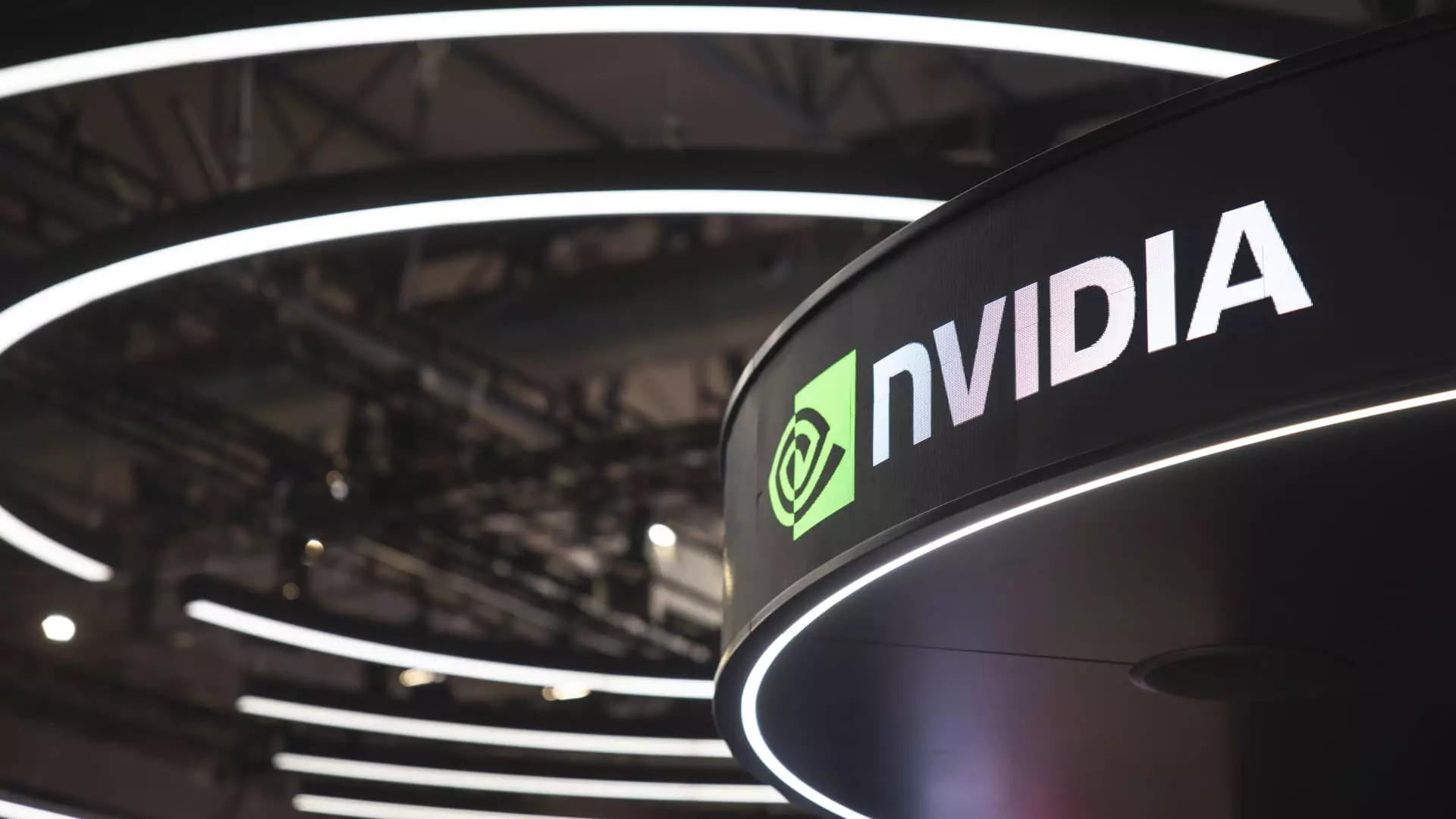In today’s rapidly evolving technological landscape, few companies have harnessed the power of artificial intelligence with the same audacity as Nvidia. With a staggering 73% year-on-year growth in its data center business, Nvidia’s financial results not only exceeded expectations but also underscore a pivotal trend in the market—a paradigm shift towards AI-driven solutions. As the world increasingly leans on AI technologies, Nvidia’s share price surged by 5 percent, announcing first-quarter adjusted earnings of 96 cents per share and revenue of $44.06 billion.
This performance is a testament to the foresight of Nvidia’s leadership, positioning the company not just as a chipmaker but as a cornerstone for future tech innovations. Other corporations should take note: the integration of AI into business models could be the key to thriving in a competitive market. To those still hesitating at the precipice of adopting AI technology, Nvidia’s results send a resounding message: adapt or get left behind.
The Downfall of HP: A Cautionary Tale
On the opposite side of the spectrum lies HP, whose shares plummeted by 15 percent following the release of disappointing guidance. The company projects fiscal third-quarter adjusted earnings to fall between 68 to 80 cents per share, considerably lower than the consensus estimate of 90 cents. This announcement signals a broader trouble brewing within traditional computing companies that fail to innovate or adapt quickly to evolving market demands.
HP’s situation shines a light on a pitfall that many organizations fall into—holding onto antiquated business models while overlooking the necessity of adaptation. In an era where consumers expect swift technological advancements, HP’s failure to meet market expectations may reflect more significant issues behind the scenes. The danger of stagnation can be fatal, and HP’s experience serves as a far-too-familiar wake-up call for many in the industry.
Salesforce: A Silver Lining Amidst Market Uncertainty
Meanwhile, Salesforce’s story casts a more positive outlook. With shares inching up by 1%, the company reported solid fiscal first-quarter results that surpassed analyst expectations. Earning $2.58 per share and generating revenue exceeding $9.83 billion, it stands as a resilience beacon amid broader economic uncertainties. By increasing its full-year forecast, Salesforce reinforces the idea that robust customer relationship management is vital in times of change.
The lessons here are critical: agility and customer-centric approaches can elevate even the most beleaguered companies in a tumultuous market. In a world rapidly embracing digital transformations, Salesforce’s strategic positioning highlights the importance of nurturing client relationships, ensuring stability and growth.
The Surge of Veeva: Reinventing Cloud Solutions
In stark contrast to declining giants like HP, Veeva Systems has emerged as a model of success, experiencing a 16% spike in its stock. With promising forecasts for adjusted earnings ranging between $1.89 and $1.90, it comes as no surprise that Veeva is redefining cloud solutions for the life sciences. The firm’s success emphasizes a crucial insight: innovation combined with a clear understanding of niche markets can yield significant dividends.
This rise further solidifies the shift towards specialized services within the tech community. As industries pivot towards tailored solutions, companies that adapt to meet precise client needs will likely flourish. Veeva’s story not only demonstrates resilience but also acts as a clarion call for other tech firms to specialize and thrive amid a crowded marketplace.
SentinelOne: Reality Check for Cybersecurity Firms
Not all stories in the tech arena are triumphant. SentinelOne’s stock took a hit of over 11%, driven by lackluster earnings and weakened guidance. Posting 2 cents per share in adjusted earnings, while hitting slightly above revenue expectations, their projection for subsequent quarters raised concerns about future growth.
The grim reality here is that the cybersecurity sector, while crucial, can easily succumb to chaotic market fluctuations. As cyber threats evolve, the pressure is mounting on firms like SentinelOne to maintain not only performance but also relevance in a fast-paced environment. Failure to anticipate future needs can lead manufacturers astray, illustrating that just surviving in the tech space is no longer sufficient.
The modern market is a battleground of innovation, resilience, and adaptability. Companies that grasp the nuances of evolving technologies, while remaining sensitive to market demands, stand poised for success, exemplifying the dynamic interplay of competition inherent in today’s economy.

